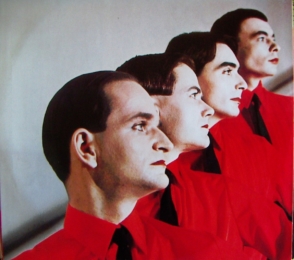Casey Dienel, a.k.a. White Hinterland, is suing Justin Bieber and Skrillex for allegedly sampling from her 2014 song, “Ring the Bell.”
In the 21st century and the age of internet, about 3 billion people possess the ability to access the internet. Individuals are bombarded, more than ever, with messages from friends on social media platforms, to marketing campaigns, behind the artists we all love.
It also makes information readily accessible to anyone, anywhere in the world. Anyone can write their own song and then upload it onto the internet. Hip-hop artists can readily access and sample from songs they like. In an age where music is being listened to more than ever, songs are going to sound similar, whether on purpose or by accident.

Take Kraftwerk’s recent court case, for instance. The electronic pioneers recently lost their case over a drum sample used by German rapper and songwriter Sabrina Setlur. Over the past decade, the case has been taken from federal to constitutional court. The court decided, however, that the sample did not impact Kraftwerk’s “artistic freedom.” They also said that muting the sample from Setlur’s work would “practically exclude the creation of pieces of music in a particular style“.
Sampling is a creative tool used by artists to aid them in the process of writing music, especially if they don’t have a background in playing musical instruments. Samples themselves are also used in new ways that better suit the new songs that they are placed in.
In the case with Justin Beiber’s 2015 hit, “Sorry,” co –produced by Skrillex, Dienel has said that Beieber and Skrillex did not seek her permission for using the pitched-up, female vocal melody that appears in the chorus of “Sorry.” “Like most artists that sample music, Bieber could have licensed my song for use in “Sorry.””
Dienel believes that the duo stole the melody from her 2014 song, “Ring the Bell.” It appears at the beginning of the song several times, before going straight into the first verse. Dienal has also said that she offered an opportunity for both parties to discuss the infringement, “but they refused to even acknowledge my claim.”
Skrillex defended the claim on Twitter and posted a video that shows exactly how the melody was created. In it, you see him manipulating the pitch of a vocal melody sung by a female.
SORRY but we didnt steal this ?? @justinbieber @bloodpop pic.twitter.com/9897j9sfY7
— SKRILLEX (@Skrillex) May 27, 2016
Bieber’s response was more relaxed. He re-posted the Twitter video and hastagged “we don’t steal” with a smiley face.
#wedontsteal @Skrillex @bloodpop #sorry 🙂 https://t.co/57rNU274Up
— Justin Bieber (@justinbieber) May 28, 2016
Are Skrillex and Beebs telling the truth, or are they trying to cover up their tracks? But more importantly, who will win the case and at what cost to music?






